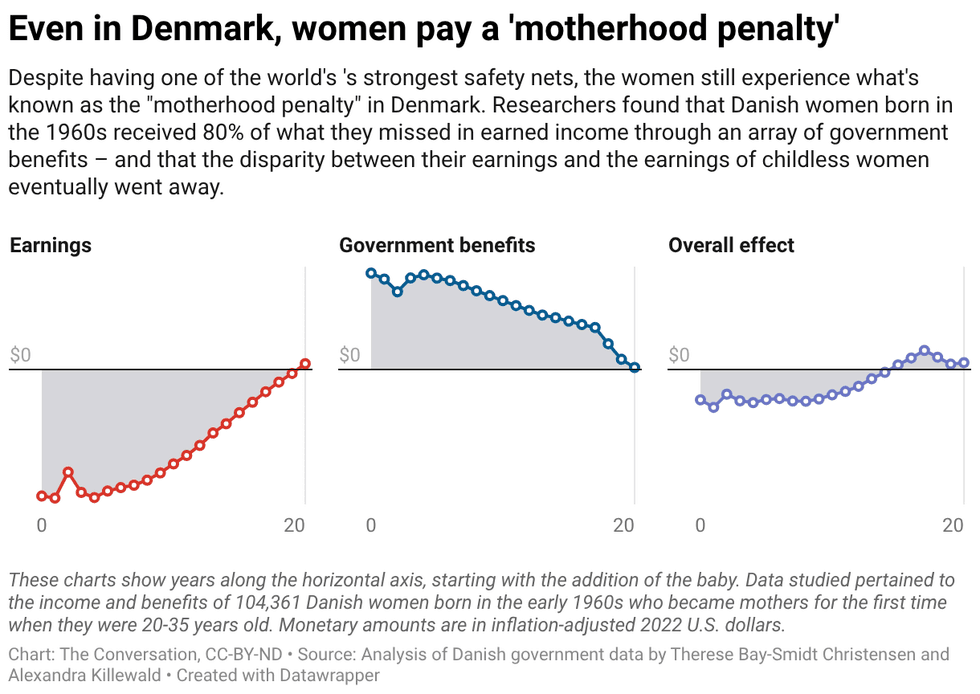Financial guru Dave Ramsey has been a go-to source for financial advice since the 1990s, and people still regularly seek his opinion. On an episode of Ramsey’s Entre Leadership podcast, a manager from Lincoln, Nebraska discussed an issue regarding raises at his company. Employees are frustrated because their system includes a two percent cost of living raise to compete with inflation, along with a merit-based raise of up to three percent. The employees feel that, if they don’t get the total three percent of their raise, it’s an indication that the company doesn’t believe they’re doing a good job. But, in most cases, there was no clear outline or benchmarks of what would qualify a person for a higher raise versus a smaller increase. Ramsey didn’t pull any punches in his response.
“A two percent raise in a nine percent inflation economy is insulting,” said Ramsey. “[In some years] we’ve had no inflation. We’ve had a contraction, meaning a recession. We haven’t tried to monitor all that. It's reflected indirectly in what it costs to hire someone for a position.”
- YouTube youtu.be
Oddly, most data has found that raises of wages are outpacing the rate of inflation in the United States, especially when wages increased during the height of COVID-19. However, many Americans still claim to feel inflation’s impact in spite of this. There are many reasons for this feeling, such as Americans seeing higher price tags on everyday items like eggs and feeling ripped off and underpaid as a result for obtaining essentials. In terms of data, while the average showed that wage increases outpaced inflation, many people in the middle or lower class had stagnated wages before the pandemic and still haven’t caught up.
So, what’s Ramsey’s model for cost-of-living raises? None. “We don’t do any cost of living,” he said. “We do marketplace adjustment.”
Ramsey went on to explain that his company adjusts the salary of his employees based on the job's market value and region. After all, the cost of living in a big city on the coast isn’t the same as living in middle America. If either of those factors change, then the pay changes. While Ramsey does offer performance raises and bonuses, he doesn't offer specific percentage raises based on merit. “We don’t have any percentages involved,” he said. “That way, I don’t have any comparison issues. It’s just, this is what this position is worth, and you’re exceeding what it’s worth by doing these things.”
Ramsey’s experience as someone who had a four million real estate portfolio at 26 years old, and then filed for personal bankruptcy at age 28, helped him learn how to get out of the financial hole himself. He’s now been a financial counselor with a net worth of $200 million for over 30 years. The bottom line? He may be onto something regarding how to appease and pay employees in these current times.
@remoteree Manhattan vs. Birmingham AL cost of living #manhattan #birmingham #newyork #alabama #budgeting sign up for Uprise for free using link in bio
While the market value of certain jobs can shift, paying the fair amount according to the cost of living of the job’s location means a great deal. The cost of living difference of a $60,000 salary from Dallas, Texas to Los Angeles, CA is 33%. From Birmingham, Alabama to Los Angeles, California? A whopping 93%. Money isn’t worth the same everywhere, so matching up in such a way is key—along with providing such data at the negotiation table.
It’s difficult for employees to ask for raises in general, but it's even harder when their role isn’t strictly tied to the company’s revenue. It’s not impossible though. Gorick Ng, a Harvard University career advisor, recommends collecting the data points Ramsey highlights such as your job’s market value, location, and the salaries of your peers versus your competitors. With all of that, Ng recommends taking a confident, but not confrontational, approach with your superiors to make your case known.
@emrezkalla Asking for a raise is usually more work than negotiating a salary 🤔 #work #getpromoted #askforaraise #salarynegotiation #payraise #learnontiktok #workplacetiktok #careertiktok #career #fyp #youshouldknow #tiktoktaughtme #moneytok #careergrowth
In tough economic times, it’s important to know your worth in general, but especially in your profession. While many employers want to make sure their employees are functioning well and making the company profitable, it’s important to advocate for yourself to weather a shrinking job market, inflation, or any other economic fluctuation.


















 The ‘motherhood penalty’ is largest in the first year after a mom’s first birth or adoption.
The ‘motherhood penalty’ is largest in the first year after a mom’s first birth or adoption. 

 As mayor of Stockton, Calif., Michael Tubbs ran a pioneering program that provided a basic income to a limited number of residents.
As mayor of Stockton, Calif., Michael Tubbs ran a pioneering program that provided a basic income to a limited number of residents. Martin Luther King Jr. believed Americans of different racial backgrounds could coalesce around shared economic interests.
Martin Luther King Jr. believed Americans of different racial backgrounds could coalesce around shared economic interests.




